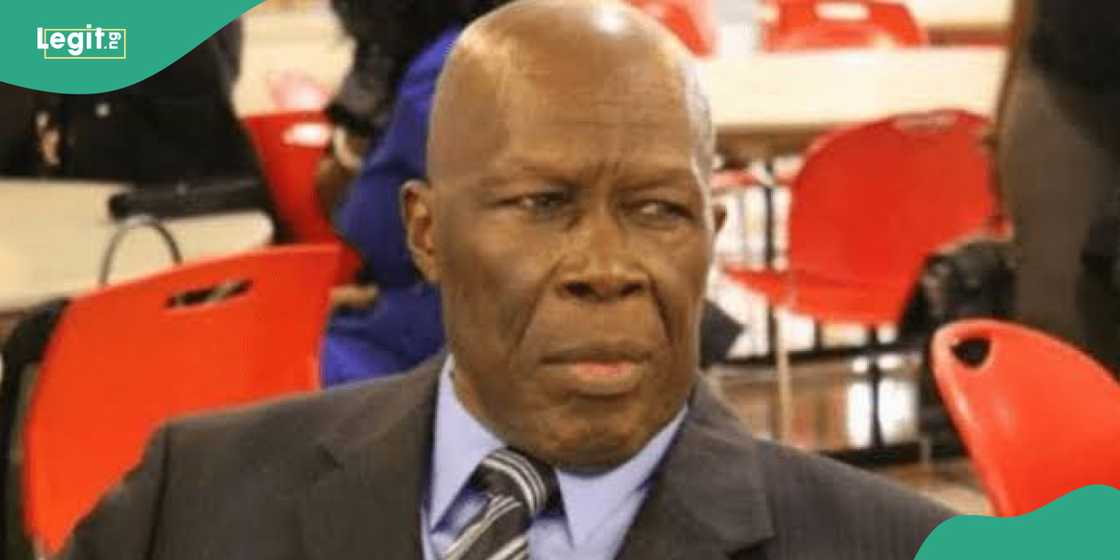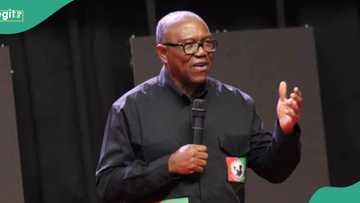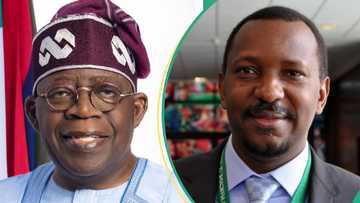BREAKING: Former INEC Chairman Humphrey Nwosu Is Dead, Details Emerge
- The chairman of the then National Electoral Commission (NEC), Professor Humphrey Nwosu, is dead
- Nwosu oversaw the June 12, 1993 election between Chief MKO Abiola of the defunct Social Democratic Party (SDP) and Bashir Tofa of the defunct National Republican Convention (NRC)
- Nwosu was ordered to halt further announcements of the June 12 election by the military ruler, General Ibrahim Babangida's regime
CHECK OUT: Education is Your Right! Don’t Let Social Norms Hold You Back. Learn Online with LEGIT. Enroll Now!
Legit.ng journalist Adekunle Dada has over 5 years of experience covering metro, government policy, and international events
Virginia, United States of America (USA) - Former chairman of the Independent National Electoral Commission (INEC) Professor Humphrey Nwosu, has passed on at the age of 82.
Nwosu served as chairman of the then National Electoral Commission (NEC) from 1989 to 1993 before it was changed to INEC.

Source: Twitter
According to Leadership, Nwosu died in a hospital in Virginia, United States of America (USA).
The former INEC was born on October 2, 1941.
He oversaw the June 12, 1993 election, widely regarded as Nigeria’s freest and fairest between Chief M. K. O. Abiola of the defunct Social Democratic Party (SDP) and Bashir Tofa of the defunct National Republican Convention (NRC).
Nwosu was ordered to halt further announcements of the June 12 election by the military ruler, General Ibrahim Babangida's regime.
The innovative Option A4 voting system and the Open Ballot system were introduced under Nwosu's leadership.
Legit.ng reports that several of those involved in the 1993 election are dead MKO Abiola, the presumed winner of the election, died in detention in 1998.
Also, Justice Bassey Ikpeme, who gave the controversial order stopping the election, died in 1997. Clement Akpamgbo, the attorney general and minister of justice who was involved in the legal tussles, died in 2006.
Admiral Augustus Aikhomu, the then second-in-command to General Ibrahim Babangida, who famously said Abiola could not be sworn in as president because the government owed him a lot of money, died in 2011.
Why June 12 Is significant in Nigeria’s history
Meanwhile, Legit.ng reported that Nigeria's pathway to democracy would not be complete if the history of the June 12, 1993, presidential election were not told.
It was a day that marked Nigeria's rebellion against the dictatorial rule of military juntas that lasted for decades.
June 12 is synonymous with Nigeria's freedom from the shackles of mediocrity to decision-making by the people.
Proofread by Kola Muhammed, journalist and copyeditor at Legit.ng
PAY ATTENTION: Сheck out news that is picked exactly for YOU ➡️ find the “Recommended for you” block on the home page and enjoy!
Source: Legit.ng



